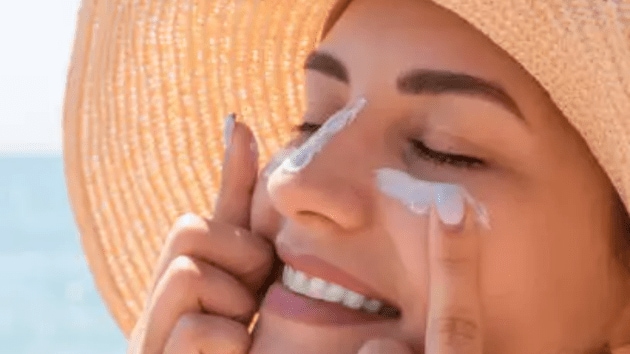Is sunscreen safe? Here’s what you need to know
Here's everything you need to know about sunscreen, if it's safe to apply or not.
 1 / 7
1 / 7Sunscreen is essential for protecting your skin from harmful UV rays, but many people wonder about its safety and long-term effects. Here’s what science says. (Source: Photo by Unsplash )
You have exhausted your
monthly limit of free stories.Read more stories for free
with an Express account.Already have an account? Sign In🎁 Use code DIWALI10 for 10% off your Express Edge plan.Already a subscriber? Sign In🎁 Use code DIWALI10 for 10% off your Express Edge plan.This content is exclusive for our subscribers.Subscribe now to get unlimited access to The Indian Express exclusive and premium stories.Already a subscriber? Sign In- 2 / 7
Concerns about Chemicals: Some chemical filters like oxybenzone can cause irritation in sensitive skin and have raised questions about absorption into the bloodstream. (Source: Photo by Unsplash )
- 3 / 7
Protects against UV Damage: Sunscreen blocks UVA and UVB rays, preventing sunburn, premature aging, and reducing the risk of skin cancer. (Source: Photo by Unsplash )
- 4 / 7
Types of Sunscreen: There are chemical sunscreens (absorb UV rays) and physical/mineral sunscreens (reflect UV rays). Each has pros and cons depending on skin type and sensitivity. (Source: Photo by Unsplash )
- 5 / 7
Mineral Sunscreens are Gentle: Zinc oxide and titanium dioxide sit on the skin’s surface, are less likely to cause irritation, and are considered safe for most skin types, including children. (Source: Photo by Unsplash )
- 6 / 7
Reapplication is Key: No sunscreen offers all day protection. Reapply every 2 to 3 hours, especially after swimming or sweating, to maintain effectiveness. (Source: Photo by Unsplash )
- 7 / 7
Environmental Impact: Some sunscreens can harm coral reefs and marine life. Reef safe formulations are free from oxybenzone and octinoxate. (Source: Photo by Unsplash )